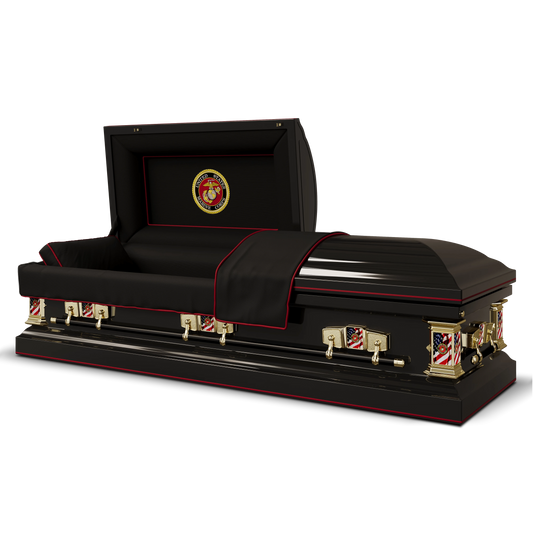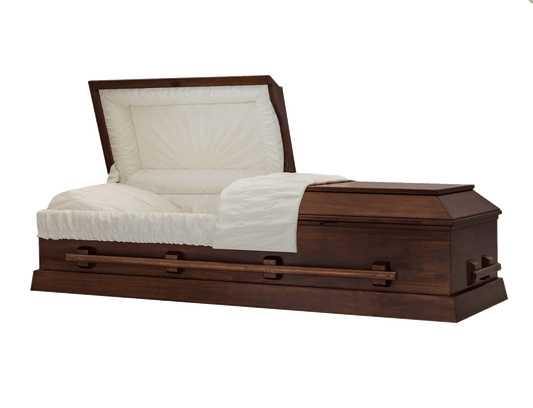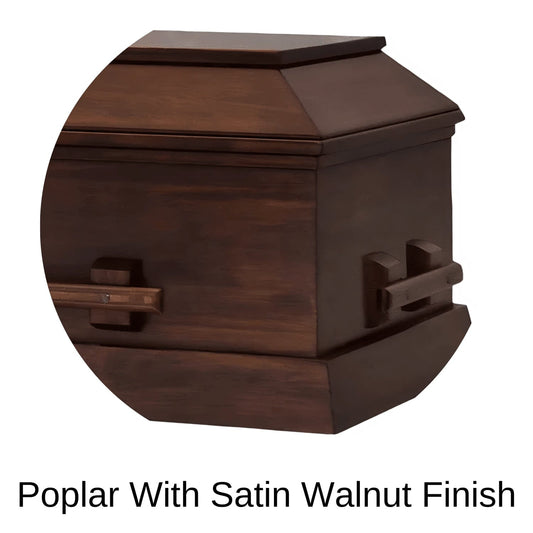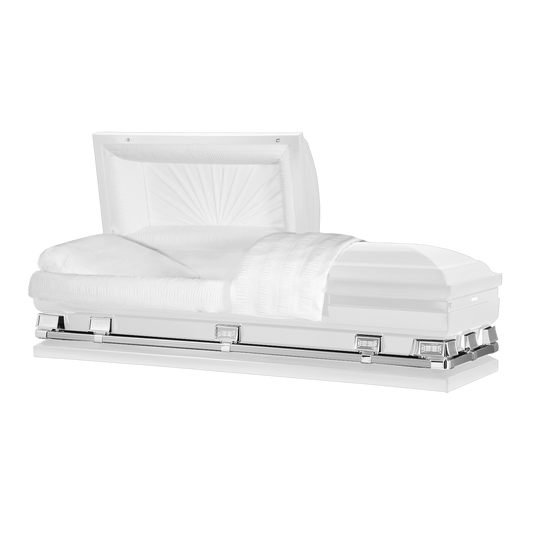When a loved one passes away, family members have many decisions to make and processes to put in place. One of the most important elements of managing a person’s end-of-life arrangements involves the administration of their estate - that is, determining how their assets are to be divided and distributed. This process is called probate, and we’ll discuss it in more detail below.
Plan Your Farewell with Grace – Our Pre-Planned Caskets Offer Peace of Mind
What Is Probate?
Probate is the legal term for the administration of a person’s property after they have passed away. It involves identifying all of the person’s assets, figuring out the value of those assets, distributing the assets and taking care of any bills or taxes that may remain.
It’s important to note that, although the specifics of the process will be different, the probate process occurs whether or not you die without a will (although it can be avoided, as discussed below). So the first step is to determine whether or not the deceased had a will at the time of their death.
How Does Probate Work If There Is A Will?
If the deceased had a will, then the person who was named executor of the will has to file a request to begin the probate process. This filing should be made in the county where the deceased lived, typically within 30 days of their passing. The executor will also need to obtain the departed’s death certificate and present it to the probate court in order for the case to officially begin.
The next step is for the probate court to prove the validity of the will. This usually involves allowing those who are named in the will to review it and voice any concerns or objections that they might have with regard to their role as beneficiaries. It also includes confirmation that the document is lawful and that the deceased was of sound mind when it was created.
Next, the executor catalogues and assesses the deceased’s property, identifying the assets that can be probated. The executor is also in charge of notifying beneficiaries about the process (if they haven’t already been notified), as well as creditors (if the deceased had any debt).
After any debts on the property are settled, taxes need to be paid. These may include income, estate and inheritance taxes. Once taxes are paid, the deceased’s remaining assets are distributed to the beneficiaries, as listed in the will. The estate can then be closed, meaning that the executor has performed all of their duties.
How Does Probate Work if There is Not a Will?
If a person dies intestate (the legal term for dying without a will), the probate process is more complex. In this case, the steps detailed above (developing an inventory of the deceased’s estate, paying debts, filing taxes and distributing the remaining assets) still apply. But these steps are carried out by a court-appointed administrator, rather than an executor as defined in the person’s will. The administrator and the probate court are responsible for deciding, based on the intestate laws of the deceased’s state of residence, how to disperse the estate’s assets. This can sometimes lead to disagreements among the deceased’s family members with regard to who should (and shouldn’t) receive what, and can be a source of additional tension during an already emotional time when loved ones are in mourning.
Is Probate Avoidable?
Probate can sometimes be avoided (or streamlined) for more modest estates; in these cases, special "small estate" procedures allow for assets valued under a certain amount to be excluded from the probate process. Another option is to create a revocable trust and transfer all probate-related property (namely bank accounts, personal property and real estate) into that trust. Unlike a will, which is only activated once a person dies, a revocable trust can be created and updated while the grantor still alive, and it also can be used to dictate how to determine assets for someone who is alive but incapacitated.
How Long Does Probate Take And What Does It Cost?
The answer to this is dependent on many things: the size of the estate, what’s included in the estate, whether or not the deceased had a will and if there are objections to the distribution of the estate by its intended beneficiaries. At a minimum, probate typically lasts several months, although in some cases it can take years.
Cost is another element of the probate process that varies depending on the value of the estate. Between administrative costs and legal fees, The Balance estimates that standard probate costs anywhere from 4% to 7% of an estate’s total value.
Whether you’ve been named as an executor or a will or you’re making your own end-of-life plans, it’s worthwhile to understand the basics of the probate process. That way, you’ll know what’s involved and be able to make the best decisions regarding your estate or the estate of a loved one.
The information provided above is not meant to replace expert estate planning, tax, or financial advice. As you design your estate plan, please reach out to a qualified professional.
Do you have questions about creating an end-of-life checklist or any other issues relating to end-of-life preparations? Titan Casket is here to help you get the funeral you want at a fair price. Contact us in the chat window or here to get started.

![Upgrade to Premium Weight [18-gauge steel]](http://titancasket.com/cdn/shop/products/casketthicknesswithnumbers.png?v=1680642906&width=533)









